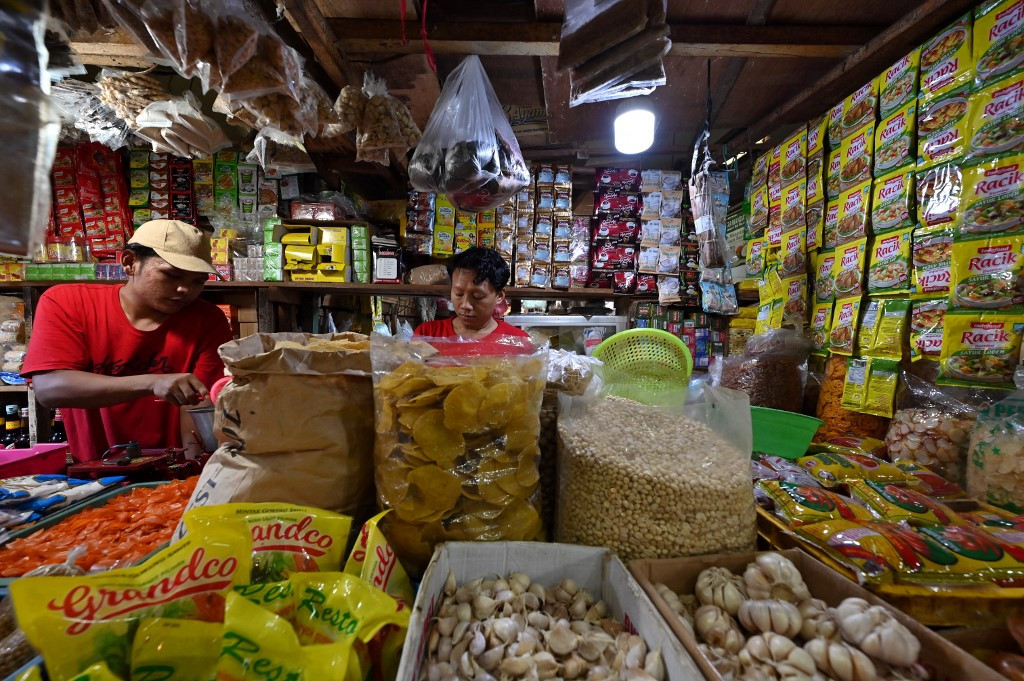Popular Reads
Top Results
Can't find what you're looking for?
View all search resultsPopular Reads
Top Results
Can't find what you're looking for?
View all search resultsWho is the bearer of bad news?
While there is a strong case to maintain subsidies for the poorest of the poor, many of these schemes are so badly administered that much of the state money is going to the people who least deserve it.
Change text size
Gift Premium Articles
to Anyone
N
o one in the government seems to want to be the bearer of bad news, not in the current political climate affected by the prolonged COVID-19 pandemic, economic uncertainty and a general election just two years away.
Nobody is telling the people to prepare for what will hit them in the coming weeks or months even as we see prices of fuel and basic foodstuffs creeping up or already soaring. Instead, ministers are giving assurances that Indonesia has enough supplies of these commodities for the duration of Ramadan. But at what price is something they are deliberately neglecting to tell us.
These denials are giving false hopes to the nation, including academics. As part of the April 11 nationwide student protests, one of the demands was for the government to bring down food and fuel prices. Clearly, this is impossible to do given the soaring prices in world markets caused by global shortages because of the Ukrainian war.
Typically, since the pandemic-induced economic recession in 2020, the government’s response has been to create more subsidy schemes, either direct to consumers or indirect to producers, at each turn of events. We are seeing a plethora of new entitlements designed to cushion the poor, from cash transfers to pre-work subsidies and the latest, a subsidy to buy cooking oil. With the government reluctant to increase the price of gasoline, the subsidy bill is further stretching the state budget.
While there is a strong case to maintain subsidies for the poorest of the poor, many of these schemes are so badly administered that much of the state money is going to the people who least deserve it.
How long can the government continue spending its way out of the crisis? Keep this up, it will bankrupt the country. Indonesia could follow Sri Lanka in defaulting on its international debt. And that’s when the real hardships will begin; something similar if not worse than the 1998 recession, which was so massive that it led to political turmoil and the downfall of the Soeharto regime.
President Joko “Jokowi” Widodo early this month openly criticized his Cabinet ministers for making statements that he said did not reflect the sense of crisis the nation is facing. Jokowi could have been more forceful with his close aides who have been completely out of sync, particularly those who had led a campaign to keep him in power beyond 2024 — a clear violation of the Consitution.
The national debate on extending his presidential term unnecessarily consumed much of the nation’s time and resources, including the massive student protests last week, which should have been expended on preparing the nation to face this imminent economic crisis.
Jokowi should take a leaf from Soeharto’s rule book on dealing with economic crises. Soeharto would “tighten the belt”, introduce strict monetary and fiscal policies and then appeal to the nation to join the government in making sacrifices for the good of the country. This would be followed by the government and its top officials leading a frugal living with an austere budget.
This would not necessarily work 100 percent, but to be seen as leading by example is important to win public support. What is clear, Indonesia will not be able to survive the coming economic crisis without everyone making their share of sacrifices.
This is obviously not going to work if everyone in the government wants to be seen to be the one bringing glad tidings, and none to deliver the bad news.











